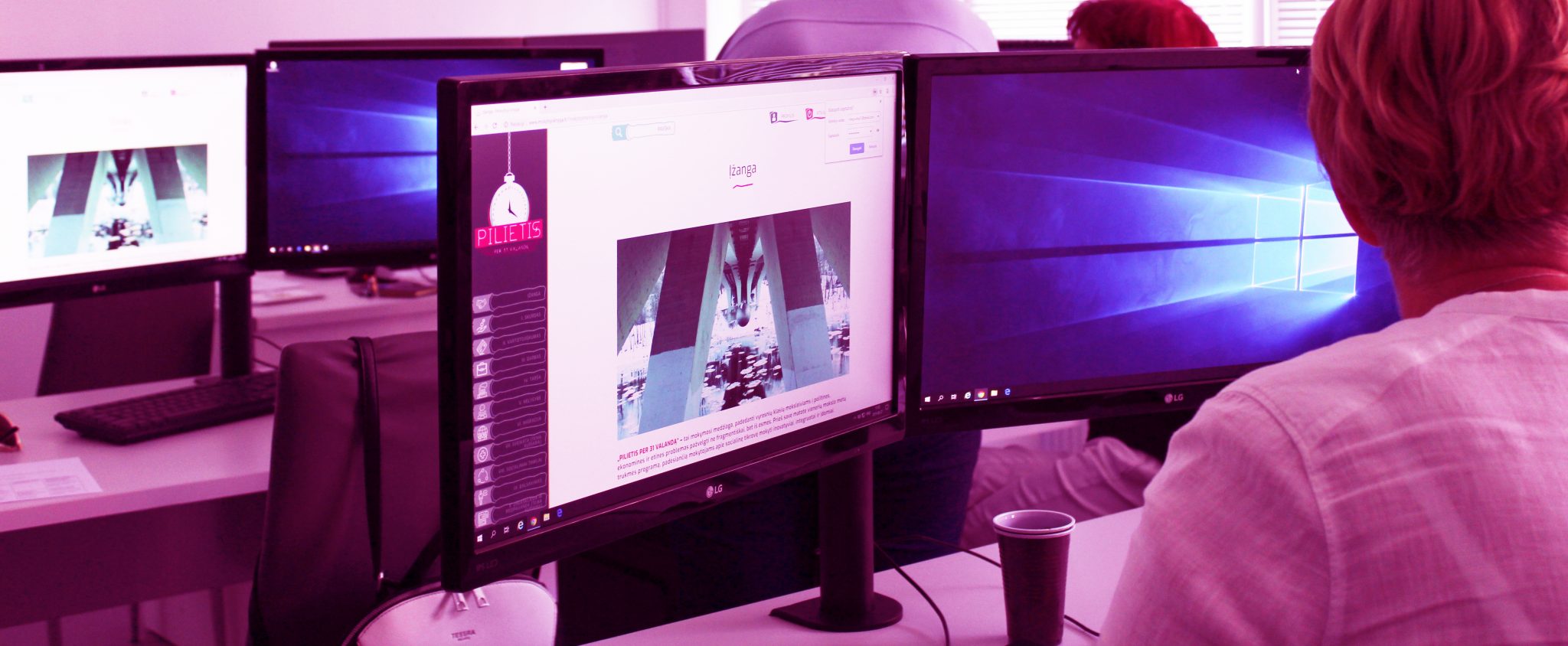
Social awareness is the ability to understand social processes, their relation and impact to oneself, others, and the world. “Citizen in 31 hours” is an initiative dedicated to inspecting political, economic, and ethical problems not fragmentarily, but fundamentally. By using this material, teachers can provide integrated lessons for moral, civic, and economic education, or even use it to diversify other lessons.
Poverty, consumerism, work, pollution, inequality, health, migration, social media, voting, propaganda – all of these are acute modern topics that affect everyone. Fundamental weapon in the context of diverse information and opinions – critical, independent thinking. Encouraging independent thinking about social issues is needed in schools, especially in senior grades, when topical issues of the society become important on a personal level, and when they must be understood to make responsible decisions and contribute to solving problems of a community.
WHY?
Why is it better to receive a €300 salary rather than a €300 allowance? Whose life should a self-driving car protect: a driver, a child, or the one that is most likely to survive? Should we open the borders for immigrants?
These and many similar questions do not fit within the framework of a classrooms, general study programmes, or disciplines. To discuss them in principle, it is necessary to use studies that are closest to a person and their life in a society. For example, moral philosophy, law, political science, economics. Also, their equivalents taught in school: ethics, civic education, economics.
Economic arguments may often seem cynical and insensitive, concerned only with achieving the best result at the lowest cost. Ethical arguments seem detached from reality. For example, no matter how morally correct it may seem to accept all refugees and help those in need, it is simply impossible due to the lack of time, resources, and possibilities. Civil, political, legal aspects appear as formal and dull only if they are accepted as the indisputable truth.
Nevertheless, together they allow the social phenomenon to be seen in realistic context. Subject integration helps to combine existing and newly acquired knowledge and the student can look for answers to relevant questions. This motivates students to be curious not only in the classroom, but also outside its door.
WHO IS THE MATERIAL FOR?
The material is for all teachers of moral, civic education and economics, that teach grades 9 to 12.
WHAT DOES THE PROGRAMME CONSIST OF?
The programme consists of material for one year of integrated education. The prepared material examines issues on three levels – personal, social, and global. We suggest looking into various issues in more detail, for example, in the topic “poverty” we raise a personal issue – “How can I help those in need?”, social “Is it possible to solve the issue of poverty?”, global – “Why does famine still exist in the world?”.
The platform consists of 31 lessons on various social topics. Each lesson covers a part of general topics specified in the general programmes of economics, ethics, and civic education.
WHAT WILL YOU FIND IN THE LESSONS?
› Animated videos created for the project that will arouse curiosity at the beginning of each lesson.
› The topics of the general programmes of civic, moral and economic education that will be related to the lesson.
› Various exercises ranging from analysis of various posts on social media to proposals for meetings outside the classroom.
› Indicative answers to make you feel confident. Remember that the suggested answers are only possible options, which you should not deem indisputable. The most important part is to encourage students to think independently, prove their points and provide valid arguments that would support their claims.
› Project suggestions. The last tasks in every major topic are three steps to the final result. Before starting one of the ten topics, review the last tasks at all levels and plan for a coherent completion of the previous topic.
› Ideas for self-assessment. Questions will be provided at the end of each lesson for students to decide whether they have understood the topic and, if not, to improve specific aspects of it.
HOW TO JOIN THE PROGRAMME?
To join the programme, teachers should visit the webpage www.mokytojoknyga.lt and register on the “Citizen in 31 hours” system (on the right side of the screen). Once we approve the registration, you will be able to access the interactive teacher’s book.